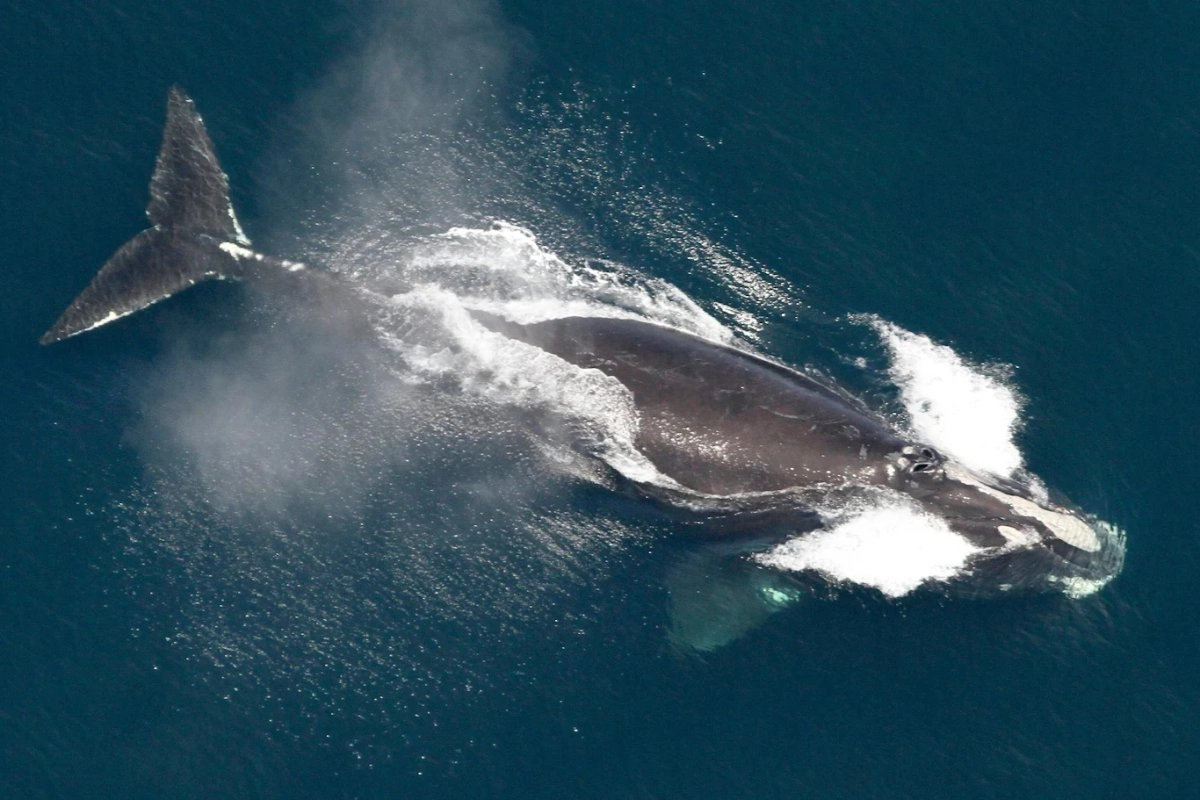One of the planet’s rarest whales has shown encouraging signs of population growth following renewed efforts to protect the species, according to scientists studying these marine giants.
The North Atlantic right whale now numbers an estimated 384 individuals, eight more than the previous year, according to a report from the North Atlantic Right Whale Consortium. The species has experienced a slow but steady recovery over the past four years — a welcome change after a troubling decline during the previous decade, when the population dropped by about 25 percent between 2010 and 2020.
“This modest annual increase, if we can sustain it, will lead to real population growth,” said Philip Hamilton, senior scientist at the Anderson Cabot Center for Ocean Life at the New England Aquarium, which collaborates with NOAA to estimate population figures.
Hamilton credited new management measures in Canada’s Gulf of St. Lawrence — aimed at keeping whales safe from ship collisions and fishing gear entanglements — as key to the rebound. Still, he cautioned that maintaining this progress will require stronger conservation actions, as the whales continue to face threats from accidental deaths.
Another encouraging sign: four female whales gave birth for the first time this year, and several others shortened the intervals between births. In total, 11 calves were born — fewer than researchers had hoped for, but still a positive indication of reproductive recovery.
“The slight increase in population estimates, combined with no recorded deaths and fewer injuries than in previous years, leaves us cautiously optimistic,” said Heather Pettis, who leads the right whale research program at the Cabot Center and chairs the consortium. “We’ve seen before that this population can change quickly.”
Once hunted nearly to extinction during the whaling era, North Atlantic right whales have been protected under U.S. federal law for decades. Each year, they migrate from breeding grounds off Florida and Georgia to feeding areas off New England and Canada.
However, climate change is reshaping their migration routes, forcing them to venture beyond protected zones in search of food — a growing challenge for one of Earth’s most endangered marine mammals.



